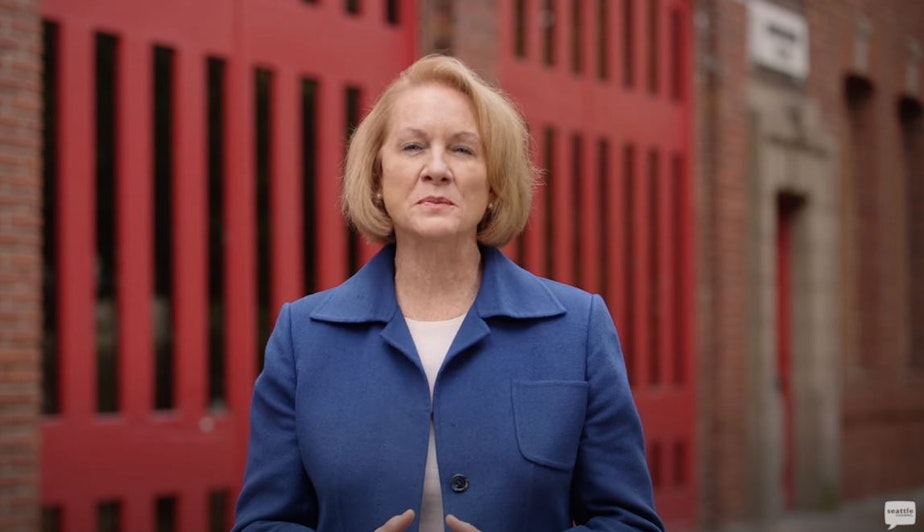Seattle's taxing budget process has begun. This week in politics

Seattle Mayor Jenny Durkan’s final budget proposal includes revenue from a payroll tax on the city’s largest companies. The JumpStart tax was approved by the Seattle City Could to tax companies spending $7 million and more on six-figure salaries.
Durkan ultimately allowed it to become law — without her signature.
Now, the tax plays a key role in her budget proposal.
It's just not exactly the role the City Council had in mind when it approved the tax in 2020.
Council members want the payroll tax to fund affordable housing, homelessness programs and Green New Deal programs. The mayor’s budget uses some of the JumpStart funds to pay for those priorities.
But Erica C. Barnett, editor and publisher of PubliCola, says the majority of that money -- $148 million of the $231 million in expected JumpStart revenue next year -- would go to the general fund to be used on a wide range of budget items.
Plus, Barnett notes the budget legislation would allow future mayors and Council members to use the JumpStart money in any way they want.
That's important, Barnett says, because Council members sold the tax plan as a mechanism to solve a specific problem: economic disparities that are pushing lower-income people out of Seattle.
Sponsored
"When you pretend that money is all just fungible and that what you pass a tax for doesn't matter, you get into really, I think, shaky territory for proposing taxes like this in the future," Barnett says.
Political analyst and columnist Joni Balter isn't especially bothered, though.
"I'm neither shocked nor appalled that politicians move money around," she argues.
Balter and Barnett are in agreement on one thing: Durkan's proposal for 35 additional Seattle police officers is going to be a problem for the Council.
The mayor's budget would provide $5 million to hire 125 officers, for a net gain of 35 assuming 90 more officers leave the force by the end of the year.
Sponsored
Barnett is expecting a compromise.
The Council could approve funding for additional officers but reject the mayor's proposal for hiring bonuses -- a proposal that was already rejected by members recently.
Balter has been predicting a shift in attitude toward the SPD budget for a while.
"Last year, the City Council was all about cutting the police department. This year, the mood is different," she says. "Violent crime is up. Response times are down. ... I think this puts a few of the Council members in the hot seat."
Specifically, Balter says City Council President Lorena González may want to rethink her position on the police budget in her bid to replace Durkan.
Sponsored
The mayoral race in November isn't the only contest heating up as Seattle cools down.
Seattle City Councilmember Kshama Sawant is facing a recall campaign. Supporters accuse Sawant of various offenses, including using city resources to promote a ballot initiative and letting demonstrators into City Hall during protests last June.
The recall will appear on a winter ballot now scheduled for December 7.
And on that topic, there's agreement: "Recalls," Balter says, "are usually a waste of time and money."
"I'd rather voters cast a more thoughtful and studied vote in the regular election than try to get it right with a do-over."
Sponsored
Sawant may not have much to be nervous about, Barnett says, but she's certainly taking it seriously.
To what end?
Barnett puts it plainly: "This is just a lot of political theater that's completely unnecessary."
Correction 10/1/2021: An earlier version of this story incorrectly stated how the bill became law: Durkan allowed it to become law without her signature.





